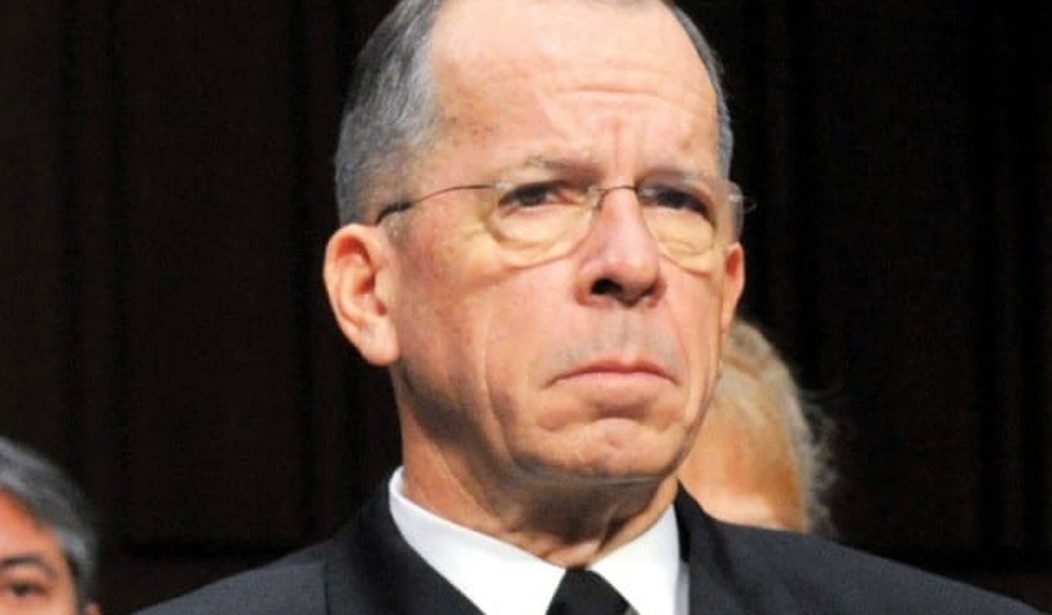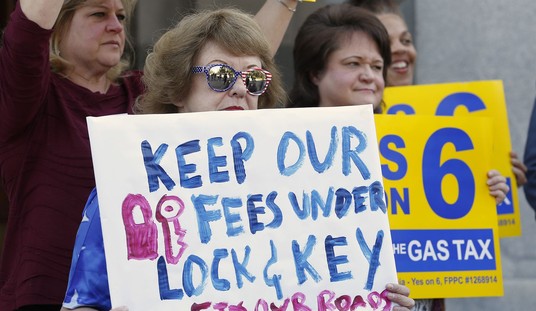WASHINGTON — The former chairman of the Joint Chiefs of Staff said at a breakfast Tuesday in Washington that the national security implications of the national debt are keeping him up at night, even as budget negotiators are “doing handstands … as if the problem has gone away.”
Adm. Mike Mullen, who retired in 2011 after serving in parts of George W. Bush’s last term and President Obama’s first term, stressed at the Concerned Veterans for America event that “the military is part of the solution to better outcomes around the world, but on a higher level it’s really about economies.”
“If you can create some stability in a peaceful environment, people’s standard of living will improve and economies will start to thrive,” he said.
Mullen said he was “delighted” with the progress made through bipartisan budget and appropriations agreements in Congress, but “I worry that it sends the signal that it’s over.”
“We just can’t be the country that we are capable of… if we just keep spending ourselves into oblivion,” the four-star retired admiral warned. “It’s going to take sacrifice, quite frankly, on the part of everybody.”
Even for all of the complaints about defense eating up the budget, Mullen said pouring the entire Pentagon budget into the debt still would have “minimal impact” without entitlement reform.
That includes means testing for entitlements, which he said he’s happy to personally do. “Those who can afford a little more need to pay a little more, as far as I’m concerned,” he said, instead of a mentality of “they feel entitled to this whether they need it or not” or “‘you owe me this,’ whether or not you need it.”
The recent bipartisan cooperation is hopefully “a harbinger of steps to be taken in the future” on broader reform. “I would hope it’s the beginning of being able to turn it around.”
Within the Pentagon, he notes that the overhead has “grown enormously” over the past couple of decades. “The force is going to get a little smaller,” Mullen said, stressing that a budget-strapped department needs “to customize our force for the world we’re living in.”
“We have a bad history in this country of ignoring the lessons, then just moving forward and starting all over again,” he said.
In addition to the debt, four other issues weigh heavy on Mullen’s mind when worrying about the future of America.
One is K-12 education, where he believes one of the problems is teachers are “not valued in the country,” while another is the political paralysis in Washington. “I hope leadership in the country at large can figure out a way to get us moving in a positive direction before we have some catastrophic event,” he said.
Mullen also worries about cyber attacks and the ability of policy makers without technical backgrounds to understand the gravity of the threat. “I understand how lethal it is,” he said, noting that the hacking of Target customers’ credit card data “speaks to the scale of the capability in the cyber world.”
The fifth big challenge is caring for this nation’s veterans who are facing “very tough employment numbers” as well as health and education challenges — though he thinks the answer is found on a local scale instead of within Washington.
“I find this ‘sea of goodwill’ out there on the part of the American people; you need local leaders to galvanize that,” Mullen said, stressing that service members are “leaving at 1,000 a day, which is normal, and we’re hiring them at about 100 a day.”
But the admiral said it’s also important that the military retain the best of the best. “After every war we lose a lot of our best people… particularly as the economy improves, they’re going to leave,” he said. “We need to keep the best we have in the military.”
While it’s early to gauge the full impact of sequestration — “one of the areas I stay out of is Obamacare,” Mullen quipped — the recent fiscal uncertainty in the military may reverberate notably in retention numbers.
On the foreign policy front, Mullen said he’s concerned Obama’s pivot to Asia is giving a sense of U.S. retreat and withdrawal from other hot zones in the world.
“I’m very supportive of rebalance,” he said, noting “that’s an economic zone that feeds the world — it needs to be stable.”
“That said, the Middle East is not going away… I don’t think we can do it and not continue to focus on the Middle East.”
“We don’t need to get into a fight with China,” Mullen added. “That doesn’t mean it isn’t going to happen.”
Watching Iraq become infested with al-Qaeda again in Anbar province has left the former chairman “extremely disappointed” but “not shocked.”
On the National Security Agency, he said from what he saw the NSA was “complying with the law; they have the interest of the United States of America at the top of their list.”
“I hate what Snowden did. I think Snowden is a traitor,” Mullen said, adding that nevertheless he’s glad there’s a debate about security vs. privacy that ensued in the wake of Snowden’s revelations. “The threat’s not going away, the danger is out there, so how do we balance that?”









Join the conversation as a VIP Member